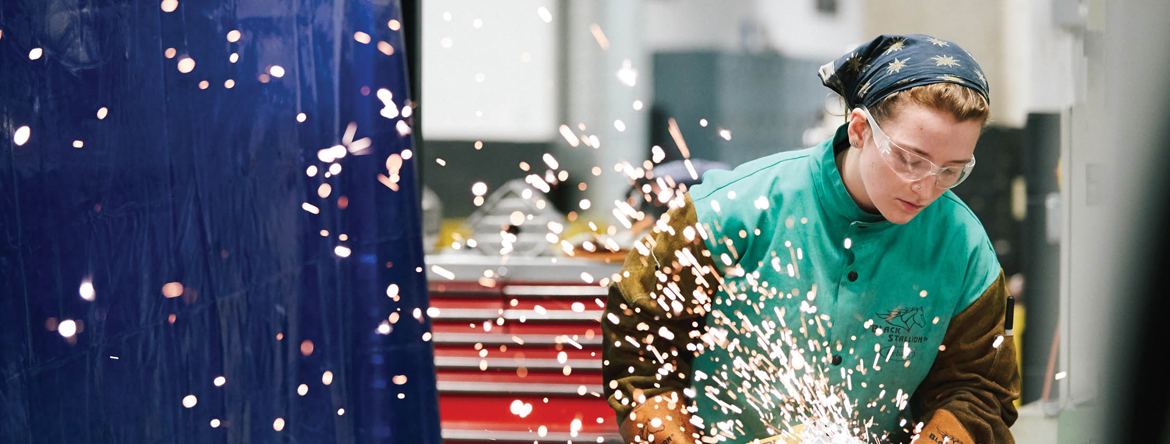Test-Drive a Career With Work-Based Learning
What is Work-Based Learning?
Work-based learning includes internships, mentoring, and apprenticeships. It's a way to test-drive a career.
Why Choose Work-Based Learning?
Work-based learning is your chance to discover things you can't learn in a classroom. It helps you connect what you're learning with real-world applications. You can get inside information about the career you're interested in or simply get a taste of what it's really like on the job.
What's Stopping You?
Don't let any of these common myths about work-based learning keep you from trying it out:
- I'm too old (or too young). There are at least a dozen types of work-based learning, with choices for adults and youth (generally aged 16 and older).
- I won't get paid. Registered apprenticeships and many internships come with a salary. We recommend paid internships.
- I'm a student, and I'm already too busy. Students can often earn course credit for work-based learning, so you may be able to do two things at once.
- I'd have to commit to something long-term. Some work-based learning opportunities are formal and last for years, but just as many are informal and much shorter.
- I'm already working, so what's the point? Even if you're already working, you may still benefit from experiences like mentorship or a practicum to help advance your career or find your dream job.
Support for every age and stage of career development
"I haven't decided what job / career I want"
The real-world work experiences you can have with work-based learning will help you better understand your career options. With work-based learning, you:- Will be exposed to different types of jobs, employers, and types of work.
- Increase your knowledge of careers — and what sort of education is needed
- Experience different workplace cultures and learn what employers expect
- Get to know employees and make meaningful connections at work
Getting Started
If you are in high school, talk to a career or college counselor.
If you are in college, talk to a career services advisor.
Additional Resources
Explore Careers
"I know what job / career I want"
Work-based learning gives you opportunities to gain the skills you need to meet your goals. You get the type of experience that will not only help you land your first job — but will also help you move up in that job. Work-based learning can help you:- Learn what employers expect from you — and how to prepare yourself for success
- Provide evidence to recruiters and employers that you're "job-ready" and have met mandatory requirements
- Gain job-specific training in your chosen industry
- Put yourself on a pathway to higher wages and benefits
- Earn credit for what you've already learned (Credit for Prior Learning)
Getting Started
If you are in high school, talk to a career or college counselor.
If you are in college, talk to a career services advisor.
If you are an adult learner, contact a career center.
Additional Resources
Explore career pathways (CAREERwise)
Search certification and degree programs at Minnesota State
Get support for finding a job or career (CareerForce)
"I want to take my career / job to the next level"
Work-based learning is a strategy to support continuing your education and moving your career to the next level. It allows you to:- Earn credit for what you've already learned (Credit for Prior Learning)
- Get certified in programs of study needed to advance in your career
- Develop new types of work experience and expand your professional network
- Earn income while developing new skills and reaching your educational goals.
- Gain hands-on experience in specific occupations
- Become credentialed for dual careers
Getting Started
If you are an adult learner who wants to change careers, contact a career center.
If you are enrolled at a college or university, talk to a career counselor.
Additional Resources
Explore career pathways (CAREERwise)
Search certification and degree programs at Minnesota State
Get support for finding a job or career (CareerForce)
Are you interested in learning more about work-based learning?
Get Help
Chat with us at the Info Hub
Toll-free: 833-905-WORK
MN Relay: 800-627-3529
